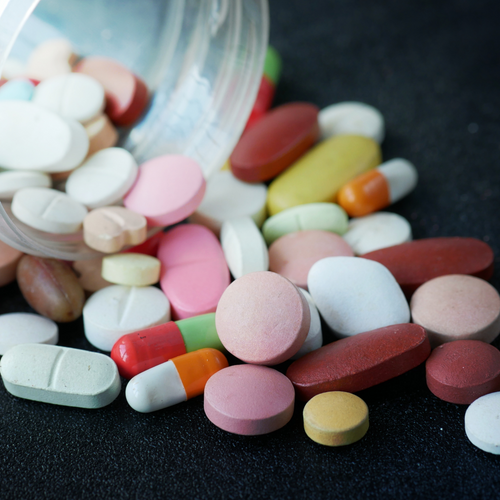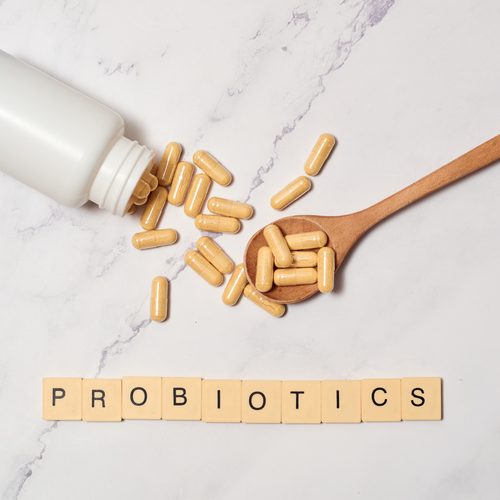The gut, and more specifically the gut microbiota , is a key element of our health. It influences many aspects of our well-being such as digestion, energy, mood, stress, and even weight management. The good bacteria that make it up are essential to keep us healthy. In fact, 70% of our immune system is located in our intestines. This is why their functioning must be optimal. And that's where prebiotic fibers come in!
Prebiotic fibers: definition and roles
Several studies have revealed that prebiotic fibers play a vital role in intestinal health and balance. But what lies behind this seemingly complex term, often confused with the closely related term probiotic?
What are prebiotic fibers?
The word prebiotic comes from the prefix pre-, meaning before, and “ bios ,” meaning life. Thus, it refers to a product that “ enables life ” or “precedes life.” In this sense, prebiotics correspond to the substrates of probiotics . They are indigestible compounds that, once ingested, progress throughout the digestive tract without being degraded and are fermented by intestinal bacteria.
Prebiotic fibers, what are they used for?
Probiotics are well known for contributing to the balance of intestinal flora . However, providing these bacteria with a quality nutrient environment with the help of prebiotic fibers is even more beneficial and effective! This is why it is worth including prebiotic foods , also known as “foods with a prebiotic effect,” in your diet. Indeed, they promote the growth of beneficial bacteria in the intestinal flora and allow them to more effectively perform their health-promoting functions.
Prebiotic fibers are found in our food, but caution is advised as not all foods have a prebiotic effect.
Prebiotics and probiotics: how to differentiate them?
According to the WHO, probiotics are defined as “live microorganisms which, when administered in adequate amounts, confer health benefits to the host.” These are most often bacterial strains naturally present within our intestinal microbiota and which confer beneficial effects on health. Probiotics enrich the intestinal flora , while prebiotic fibers stimulate its growth . They therefore act synergistically to maintain optimal overall health, good immunity and even promote digestion.
All this shows that it is important to know which foods are rich in probiotics and prebiotics to eat to maintain good gut health.
Our TOP 8 essential prebiotic foods 🏆
The consumption of prebiotics, necessary to “feed” them, is important and often overlooked. In fact, it is recommended to consume 30 to 40 g of fiber per day . However, studies have shown that the average fiber consumed by the adult population is actually only 17.5 g/day*.
To enrich your diet with prebiotic foods and benefit from their digestive health benefits, consider eating fruits, vegetables, seeds, and roots. Here are our top 8 must-have prebiotic-rich foods:
1 - Chicory

Chicory is one of the richest sources of inulin , a prebiotic that promotes the growth of good bacteria in the gut. Chicory is also rich in antioxidants , making it beneficial for overall health.
2 - Garlic and onions, foods for the growth of bacteria

Garlic and onion are rich in prebiotics called fructooligosaccharides (FOS) and inulin . These compounds stimulate the growth of beneficial bacteria such as Bifidobacterium and Lactobacillus, which contribute to better digestive health.
3 - Bananas

Bananas contain resistant starch , a form of prebiotic that escapes digestion in the stomach and small intestine and reaches the colon intact. Once in the colon, resistant starch is fermented by beneficial bacteria, promoting their growth .
4 - Asparagus, a food for regular transit

Asparagus is rich in inulin , a prebiotic that promotes the growth of beneficial bacteria in the gut. It is also rich in fiber , which promotes bowel regularity .
5 - Apples

Apples are rich in pectin , a form of prebiotic that helps feed the good bacteria in the gut. Apples are also rich in soluble fiber , making them ideal for regulating bowel movements .
6 - Artichokes, a food rich in inulin and fiber

Artichokes contain inulin , a prebiotic that stimulates the growth of beneficial bacteria in the gut. Artichokes are also high in fiber , making them an excellent food for regulating digestion.
7 - Legumes

Legumes, such as chickpeas, lentils, and beans, are rich in prebiotics such as FOS and inulin . They are also rich in soluble and insoluble fiber, making them an excellent food for regulating intestinal transit .
8 - Oat flakes, to rebalance your flora and facilitate your transit

Oat flakes are rich in beta-glucans , a form of prebiotic that stimulates the growth of beneficial bacteria in the gut. They are also rich in soluble fiber , making them ideal for regulating bowel movements .
*Public Health France. Health study on the environment, biomonitoring, physical activity and nutrition (Esteban) 2014-2016. Nutrition section. Food consumption chapter. 2018. Available at: < www.santepubliquefrance.fr >.













